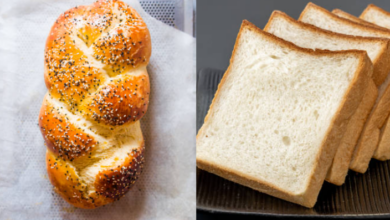Uncover The Mystery: Is Challah Bread Mentioned In The Bible?
What To Know
- The mitzvah (commandment) of challah, as it is known today, is derived from the Talmud, a collection of Jewish law and tradition.
- Challah became a symbol of the Sabbath and holidays, representing the blessing and abundance of the Jewish people.
- While the Bible does not explicitly mention challah bread by name, the mitzvah of challah and its association with the braided bread we know today has its roots in the biblical period.
Challah bread, a delectable Jewish bread, has been a staple in Jewish cuisine for centuries. However, the question of whether it finds its roots in the Bible remains a topic of debate. In this comprehensive exploration, we delve into the ancient texts and traditions to uncover the truth behind “is challah bread in the bible.”
Historical Origins of Challah Bread
The earliest known evidence of challah bread dates back to the late Bronze Age in Mesopotamia, around 2000 BCE. However, the biblical origins of challah are more elusive.
Biblical References to Bread
The Bible contains numerous references to bread, but the specific mention of challah is not explicitly stated. The term “challah” first appears in the Book of Numbers (15:19-21), where it refers to a portion of dough that was given to the priests as an offering. However, it is unclear whether this offering was associated with the bread known today as challah.
The Mitzvah of Challah
The mitzvah (commandment) of challah, as it is known today, is derived from the Talmud, a collection of Jewish law and tradition. The Talmud states that a portion of dough from certain types of bread should be separated and given to the priest or Levite (Numbers 18:12). This practice is believed to have originated in the biblical period.
Challah in Jewish Culture
Over time, the challah offering became associated with the special braided bread that we know today. Challah became a symbol of the Sabbath and holidays, representing the blessing and abundance of the Jewish people.
The Braiding of Challah
The distinctive braiding of challah bread has symbolic significance. The three or six strands represent the Torah (the Jewish law) or the six days of creation, respectively. The center strand is often thicker, symbolizing the Sabbath.
Challah in Modern Jewish Life
Today, challah bread remains a central part of Jewish culture. It is served at Sabbath and holiday meals, representing the joy and celebration of the occasion. Challah is also used for various religious ceremonies, such as Havdalah (the ceremony that marks the end of the Sabbath).
Takeaways: Unveiling the Mystery
While the Bible does not explicitly mention challah bread by name, the mitzvah of challah and its association with the braided bread we know today has its roots in the biblical period. Through the centuries, challah has become an integral part of Jewish tradition and culture, symbolizing abundance, blessing, and the connection to the divine.
Answers to Your Questions
Q: Is challah bread mentioned in the Torah?
A: No, the term “challah” is not explicitly mentioned in the Torah. However, the mitzvah of challah, which is associated with braided bread, is derived from the Talmud.
Q: What is the significance of the braiding in challah bread?
A: The braiding represents the Torah or the six days of creation. The center strand is thicker, symbolizing the Sabbath.
Q: When is challah bread traditionally eaten?
A: Challah bread is traditionally eaten on Sabbath and holidays, representing joy and celebration. It is also used for religious ceremonies such as Havdalah.
